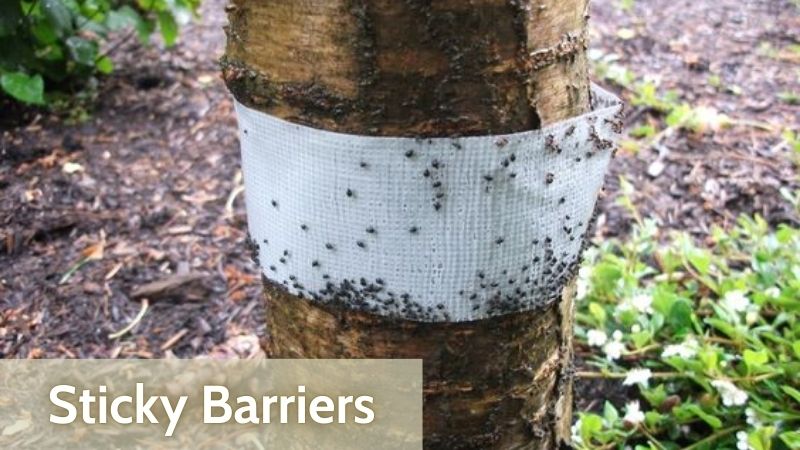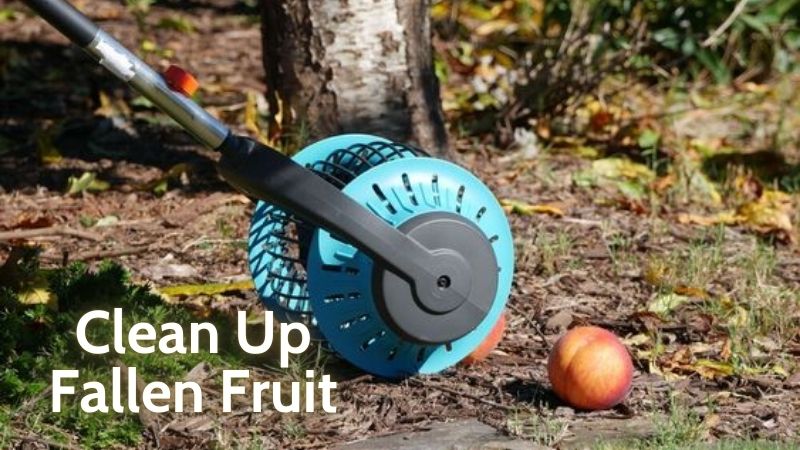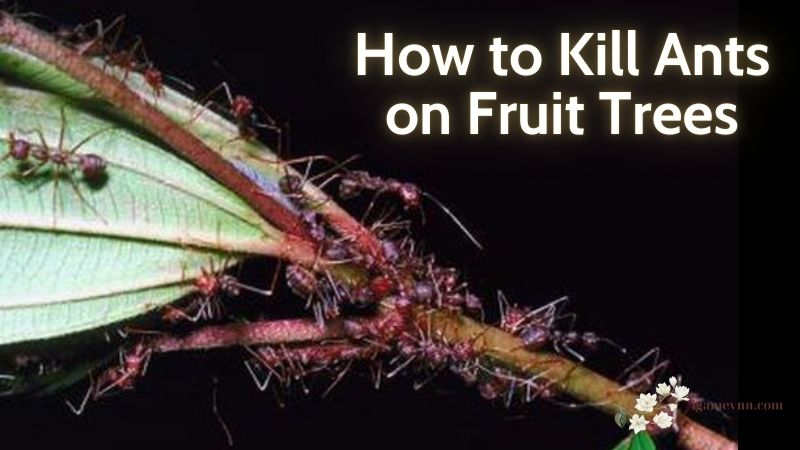Ants can be a persistent problem for fruit trees, not only because they can damage the trees themselves but also because they tend to farm and protect other pests like aphids and scale insects. This comprehensive guide from Igamevnn will walk you through various methods on how to kill ants on fruit trees effectively, using both natural and chemical approaches while ensuring the safety of the trees and their fruit.
Table of Contents
ToggleHow to Kill Ants on Fruit Trees
Natural and Non-Toxic Methods
- Sticky Barriers: One of the most effective ways on how to kill ants on fruit trees is by preventing them from reaching the foliage in the first place. Sticky barriers can be applied around the trunk of the tree to stop ants from climbing up. Products like Tanglefoot work well for this purpose. To use, wrap the trunk with a protective layer such as tape or plastic wrap before applying the sticky substance. This prevents direct contact with the tree bark, which can cause damage over time. Check and reapply the sticky barrier regularly to maintain its effectiveness.

- Diatomaceous Earth: Diatomaceous earth is a natural powder made from fossilized algae that is highly abrasive to insects. Sprinkling food-grade diatomaceous earth around the base of the tree can be an effective way to kill ants on fruit trees. The tiny sharp edges of the powder cut through the ants’ exoskeletons, causing them to dehydrate and die. Reapply after rain or heavy watering to maintain a continuous barrier.
- Essential Oils: Essential oils can be a natural deterrent for ants. To make a spray, mix a few drops of essential oils like peppermint, cinnamon, or citrus with water and a bit of dish soap. Spray this mixture around the base of the tree and on the trunk. The strong scent of these oils repels ants and can help keep them away from your fruit trees.
- Boiling Water: If you notice ant mounds near the base of your fruit trees, pouring boiling water directly onto the mounds can kill ants on fruit trees effectively. However, this method should be used with caution to avoid damaging the tree roots. This is a quick and immediate solution for reducing ant populations around your trees.
Organic and Chemical Methods
- Ant Baits: Ant baits are a targeted approach to kill ants on fruit trees. These baits contain substances that ants find attractive and take back to their colony. Place bait stations near the base of the tree but not directly on it. The ants will carry the poison back to their nest, effectively eliminating the colony. Be sure to choose ant baits that are safe for use around fruit trees to avoid contamination.
- Insecticidal Soap: Insecticidal soap is another method to kill ants on fruit trees. This soap is designed to kill soft-bodied insects like aphids, and it can also be effective against ants. Spray insecticidal soap on the tree and around the base to target ants directly. This method is safe for the tree and its fruit when used according to the manufacturer’s instructions.
- Neem Oil: Neem oil is a natural insecticide derived from the neem tree. It can be used to repel and kill ants on fruit trees. To use, mix neem oil with water and spray it on the tree, focusing on areas where ants are present. Neem oil not only helps repel ants but also controls other pests like aphids and mites, providing a broad-spectrum solution.

Preventive Measures
- Maintain Tree Health: Keeping your fruit trees healthy is one of the best ways to prevent ant infestations. Regular watering, pruning, and fertilization help maintain the tree’s vigor, making it less attractive to pests. Healthy trees are better able to withstand and recover from pest damage.
- Remove Aphids and Other Insects: Ants are often attracted to fruit trees because they farm and protect aphids and other pests that produce honeydew. Controlling these pests will reduce the ant population. Use insecticidal soap, neem oil, or introduce beneficial insects like ladybugs to keep aphid populations in check. This indirectly helps to kill ants on fruit trees by removing their food source.
- Clean Up Fallen Fruit: Fallen fruit can attract ants and other pests. Regularly remove any fallen fruit from around the base of the tree. This not only helps to kill ants on fruit trees by reducing their food sources but also prevents other problems like fungal diseases and fruit rot.

- Trim Tree Branches: Ensure that no branches are touching the ground or other structures that ants can use as a bridge to access the tree. Trim any overhanging branches to create a gap that ants cannot cross easily. This physical barrier can be an effective way to kill ants on fruit trees by limiting their access routes.
Conclusion
Understanding how to kill ants on fruit trees involves a combination of preventive measures and targeted treatments. By using natural and non-toxic methods like sticky barriers, diatomaceous earth, and essential oils, you can create an environment that is hostile to ants without harming the tree or its fruit. For more severe infestations, organic and chemical solutions such as ant baits, insecticidal soap, and neem oil can provide effective control. Additionally, maintaining tree health, removing fallen fruit, and controlling other pests like aphids can prevent ants from becoming a problem in the first place.
Regular monitoring and maintenance are key to keeping ants at bay. By following these comprehensive strategies on how to kill ants on fruit trees, you can ensure your fruit trees remain healthy and productive, free from the damage and nuisance caused by ants and the pests they protect.

